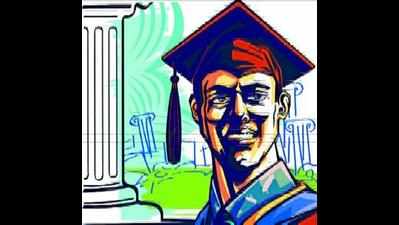- News
- City News
- thiruvananthapuram News
- Scientists and academics hit out at draft education policy
Trending
This story is from August 23, 2016
Scientists and academics hit out at draft education policy
The draft of the new education policy (NEP)-2016 has drawn flak from the state's scientific community with many of the members pointing out that instead of addressing the real problems faced by the education system, it proposes measures which will further stagnate the education performance in the country.

The existence of dichotomy between liberal and professional education is an issue that needs to be addressed, educationists feel.
THIRUVANANTHAPURAM: The draft of the new education policy (NEP)-2016 has drawn flak from the state's scientific community with many of the members pointing out that instead of addressing the real problems faced by the education system, it proposes measures which will further stagnate the education performance in the country.
The Union Ministry of Human Resources Development had recently reached out to scientists and academics for their inputs on the new education policy.
The draft points to the rampant commercialization of primary and higher education and draws attention to the skyrocketing admission fees in private institutions. It also mentions that the proliferation of sub-standard institutions has contributed to the falling educational standards. However, the policy is silent on replacing such profit-oriented private ventures with well-funded government schools and colleges, said Francis Kalathunkal, general convenor of the Breakthrough Science Society. Instead of suggesting alternative solutions, the draft policy aims to boost private investment in the sector, he said
The NEP-2016 document steers away from directly spelling out the Hindutva agenda of the NDA government but academicians point out that the preamble of the NEP 2016 says that the education System which evolved first in ancient India is known as the Vedic system.
"Scientific methods and the lives and struggles of great scientists are not included in the curriculum. Naturally, students learn science just as any other subject, without understanding that it is a guide to thinking. That is why we see so many people who have studied science subscribing to all sorts of superstitions," he said.
"Education is not about making a person fit for a job or about teaching him how to make money. It should aim at making a person think the right way and help him develop a scientific temper. Our system gives no priority to value-based education. Instead, it looks at making education big business in order to reap profits," said Calicut University's life sciences department head Dr E Sreekumaran.
"Science textbooks are overloaded but there are no facilities to conduct experiments. Our education should promote science education and promote scientific temper. Science students should be told in the beginning itself that there is no Bible and no God in science. Only then, they can challenge existing paradigms and invent out of box thinking," said Praveen Raj, senior scientist at the SIR-National Institute of Interdisciplinary Science and Technology.
The Union Ministry of Human Resources Development had recently reached out to scientists and academics for their inputs on the new education policy.
The draft points to the rampant commercialization of primary and higher education and draws attention to the skyrocketing admission fees in private institutions. It also mentions that the proliferation of sub-standard institutions has contributed to the falling educational standards. However, the policy is silent on replacing such profit-oriented private ventures with well-funded government schools and colleges, said Francis Kalathunkal, general convenor of the Breakthrough Science Society. Instead of suggesting alternative solutions, the draft policy aims to boost private investment in the sector, he said
The NEP-2016 document steers away from directly spelling out the Hindutva agenda of the NDA government but academicians point out that the preamble of the NEP 2016 says that the education System which evolved first in ancient India is known as the Vedic system.
"None of the government schools have any lab facilities. The students have to confine their learning to sub-standard textbooks. Naturally, the understanding of the students becomes truncated. Science textbooks are crammed with facts, figures and theories, but nowhere do we see any mention how we arrived at scientific truths," said a senior scientist.
"Scientific methods and the lives and struggles of great scientists are not included in the curriculum. Naturally, students learn science just as any other subject, without understanding that it is a guide to thinking. That is why we see so many people who have studied science subscribing to all sorts of superstitions," he said.
"Education is not about making a person fit for a job or about teaching him how to make money. It should aim at making a person think the right way and help him develop a scientific temper. Our system gives no priority to value-based education. Instead, it looks at making education big business in order to reap profits," said Calicut University's life sciences department head Dr E Sreekumaran.
"Science textbooks are overloaded but there are no facilities to conduct experiments. Our education should promote science education and promote scientific temper. Science students should be told in the beginning itself that there is no Bible and no God in science. Only then, they can challenge existing paradigms and invent out of box thinking," said Praveen Raj, senior scientist at the SIR-National Institute of Interdisciplinary Science and Technology.
End of Article
FOLLOW US ON SOCIAL MEDIA










